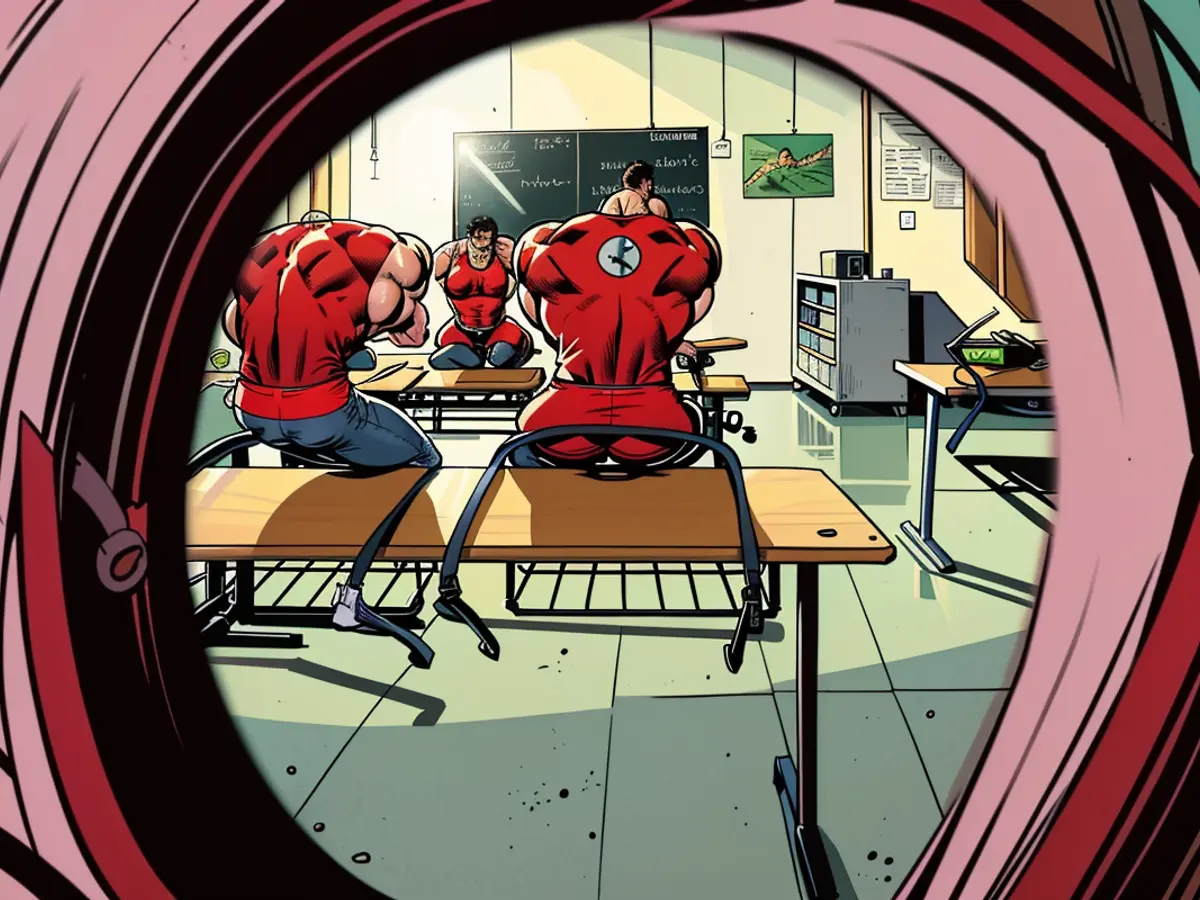- Detailed prerequisites for commencing education at a school
Students, parents, and unions have a long list of requests after the summer break, including more schools, improved digital connections, intense German lessons, and regular topics in class. Ensuring enough teachers, school psychologists, and social workers is crucial for the new school year starting on Monday in Rhineland-Palatinate.
Digital learning still poses challenges
Many schools in the state are outdated and have a downbeat vibe, according to a representative from the state's student body. Additionally, some schools in Rhineland-Palatinate lack internet access or have poor connections, making digital work particularly difficult.
Overworked school social workers
There's a shortage of school social workers, who often take care of multiple schools. This means they have less time to focus on individual schools, especially during stressful periods like exams. School psychologists are also important.
Schools should address future anxieties
Students deal with daily worries about issues like climate change and war, causing many young people to fear the future. Schools should provide a supportive environment and help prepare children and youth for the future through classroom education, the representative suggested.
Improving German language skills
The biggest challenge is the poor German language skills among students in primary and secondary schools, with varied standards across regions. Both teachers and students struggle with these language barriers, a representative pointed out.
More male teachers in primary schools
Concerns have been raised about the growing restlessness in crowded classrooms. This could be addressed by increasing the number of male teachers, which would require making the profession, training, and pay more appealing.
Teacher shortage in math, physics, tech, special education
There's a significant shortage of teachers in math, physics, tech, and special education. Additional teachers are needed to implement a comprehensive full-day program with pedagogical support. The digital resources in the state's schools differ greatly.
More commitment to expanding full-day programs
The Education and Science Union (GEW) also demands more commitment to expanding full-day programs in Rhineland-Palatinate. "We don't see enough commitment, and it seems everyone involved in education doesn't fully grasp the scope of this need," the union board explained. By August 2026, the current number of full-day schools and places will not be enough to meet the legal requirement and families' needs.
No filling gaps with untrained staff
More staff, including to cover teacher absences, should be provided to support multiprofessional teams. Schools need real multiprofessionalism from educational professionals. "We must not fulfill supply gaps with untrained staff," demands the GEW.
Modern schools need more individual work areas, retreat zones, small group spaces, team rooms, and whole-class classrooms. Without these, diverse teaching methods and individualized instruction become challenging. The new school building directive is a good start. However, only a few new schools are built in the country each year. Renovating the nearly 1,500 existing buildings for contemporary teaching with various learning groups is the real challenge.
Full-time school scheduling should be considered for better supportGiven the teacher shortage in various subjects, implementing a full-time school schedule could alleviate the burden on teachers and ensure consistent instruction for students.
Full-time schools can address learning disparitiesTo effectively address the varying language skills among students, implementing full-time schools could provide more consistent and intensive German language instruction, ultimately reducing language barriers.








